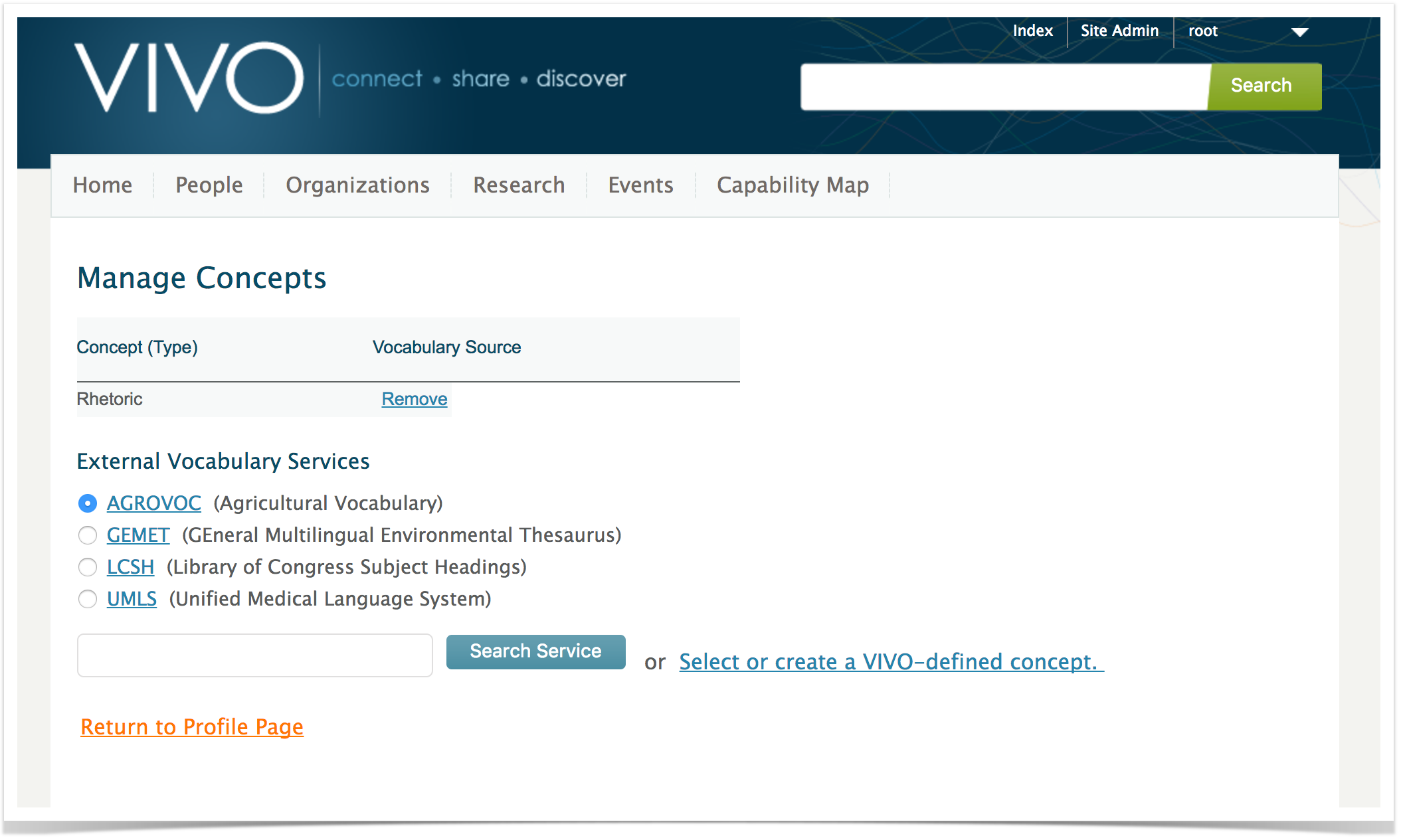VIVO provides the ability to use external vocabularies to represent the research areas of scholars, and the concepts pertaining to scholarly works. External vocabularies that provide RDF can be used with VIVO. Using an external service, a curator, or page owner may query the external vocabulary for terms, and select terms representing the work or scholar. The terms are fetched from the external service and added to the VIVO triple store. Links from the work or person are added to connect the person or work to the selected term or terms.
See below

The UMLS External Vocabulary Service is provided by the National Institutes of Health in the United States. They require a username, password, and apikey to use the service. You can get a username, password and apikey at no charge from the NIH. Visit https://www.nlm.nih.gov/databases/umls.html
Once you have a username, password, and apikey, create a text file called umls.properties. Your file should look like the one below, with your values for username, password and apikey substituted.
username = yourumlsusername password = yourumlspassword apikey = yourumlsapikey |
Place this file in /api/src/test/resources/umls.properties
Restart Tomcat
When external concepts are added to VIVO, they retain their original URI from the external vocabulary. Since we have no way of knowing whether these URIs represent OWL classes or RDF instance data, VIVO does not assert a type for the concepts, which will therefore only be interpreted as being of type owl:Thing.
To add a new external vocabulary, see Adding External Vocabularies